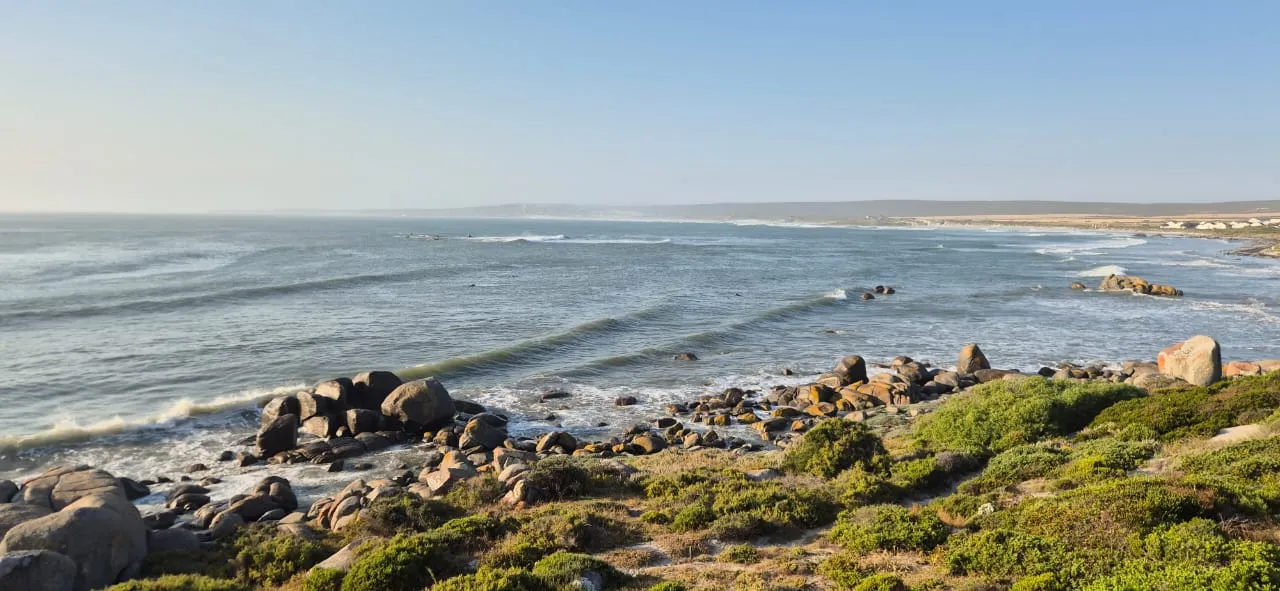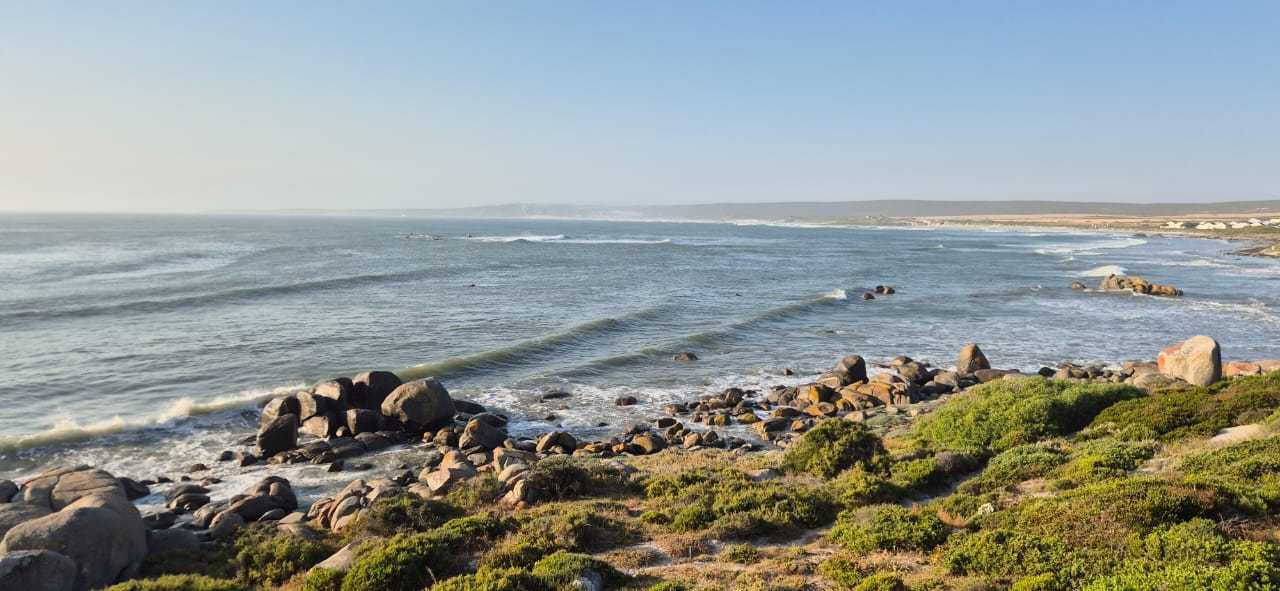Empowering legal professionals
Make us your partner, to help you gain the competitive advantage you seek.

I was chatting with the team at Nabii Intel (our brilliant researchers) and in the middle of discussing the future of lawyers charge out rates we quickly got into the history of law firm revenues.
This made me think of this article, so whilst sitting at the beach this weekend, I decided to plot it out - with a little help from the Googlenet..
(My view whilst writing)

An Introduction
Close your eyes and allow your mind to wander for a moment. Take yourself back to the dawn of law in South Africa, where dusty streets in the Cape Colony echoed with the measured tread of robed advocates and hopeful clerks.
It was the chill of August 1791, and this was a colony both raw and restless. By candlelight, four men named Wagner, Vercuill, Colver, van Leeuwen huddled in a musty room, collars wilted by stress as much as summer heat. The ink on their hands was still wet as they pledged themselves not just to the law, but to the fates of distant monarchs and the enigmatic Company across the sea.
Outside their door, the city thrummed: merchants bartered in raspy Dutch, freed slaves pressed for justice, sailors brawled, and Malay exiles traded stories and smirks. Justice was not yet a place or a system, it was an idea, being hammered into something sturdy beneath the weight of every new case, every plea scrawled across a page.
Decades spun forward. By 1812, Cape Town had grown up. Picture in your mind John Merrington, starched collar inevitably askew, dodging donkey carts and ox-wagons as he dashed from courtroom to office. The city was alive; vendor cries and seagull shrieks blended with shouts from bustling legal clerks. Children played chase along freshly laid cobbles, while the domes of new courthouses shimmered in midday sun as testament to dreams of order in restless lands.
Leap across a century: the anxious 1950s, Johannesburg. Now, inside Chancellor House, a heavy brass plaque reads “Mandela & Tambo Attorneys.” Each dawn, Nelson and Oliver shoulder their way through a crowd that stretches down the stairwell, labourers in overalls, seamstresses in calico, miners still dusted with the gold of the reef.
In this city, hope has a scent, overripe fruit from the hawkers, dust from the pavement, and the wax polish on battered waiting-room chairs. Here, clients are not abstractions: they are mothers fretting over split families, workers hunted by pass laws, fathers with the world’s sorrows stitched into their suits.
Mandela, tall and stately, greets each, sometimes solemn, sometimes breaking into that famous smile. Tambo works close beside him, brow furrowed over his diary and case notes, radiating quiet fire and resolve. In these cramped rooms, injustice is drawn in through every open window and chased out in every brief, every brave legal strategy, every handshake of thanks.
To the people on Miriam Makeba Street, Mandela & Tambo is the final fortress. Outside, dust and hope swirl in the sunshine.
But at this time, South Africa was a country living two histories at once.
Step out into the wide, sunbaked business district and witness a different world, gleaming with cranes, new office blocks, and café terraces splashed with the laughter of Johannesburg’s business elite. White-owned businesses boomed on the wealth of gold and manufacturing, new enterprises sprouting as quickly as the city’s skyline. Profits soared, trade flourished, and cocktail parties buzzed with the confidence of men whose suits were as crisp as their belief in the stability of the system that had built their empires.
The economy grew at a dizzying pace for the minority, fuelled by exclusion and the instrument of enforced cheap labour. The mining houses and banks counted profit in millions, while millions of their fellow citizens counted the cost in days spent locked out of opportunity.
In the streets and in the boardrooms, the business of law, and the business of apartheid, spun disgustingly parallel tales: one of accumulation and building for a privileged few, the other of endurance and resistance for everyone else. The law offices of the city, from the marble foyers of the Rand Club to the crowded stairwells of Chancellor House, bore silent witness to the chasm in South African life.
And yet, even then, those fighting for dignity and justice never lost faith in the rule of law - or in their power to change it.
Elsewhere, Bram Fischer stands in musty legal offices ringed by police. Advocate and Afrikaner rebel, standing stoic against fellow Afrikaners to defend Mandela during the Rivonia Trial. Commonplace are raids, confiscations, and the ever-louder footsteps of justice, either denied or, just sometimes, delivered. Bram’s chambers are ransacked, but still the work for justice for all, doesn’t stop; the papers may be scattered beneath boots, but the cause is never crushed.
Step outside these chambers and feel the rhythm of the cities: hawkers with their morning sing-song on Fox Street, gold dealers watching the world go by, horses clattering on cobbles. Mothers shout beneath washing lines, anti-apartheid protesters chant as security police frown from the corners, and young clerks dart through traffic, arms full of heavy files and even heavier dreams.
Somewhere upstairs, a hopeful candidate drafts an urgent affidavit, the lamps flickering, while city lights glow like a promise beyond the trams and jagged city skyline.
And now, let your mind flash forward, because what began in those candlelit rooms and crowded offices has become a billion-rand force of nature.
Fairbridges, ENS, Bowmans, Cliffe Dekker, Werksmans, Webber Wentzel, and the many, many thousands of smaller firms: the legal industry now hums with the lifeblood of deals and daily disputes, brisk e-mails and urgent midnight calls.
The rule of law has become the highway on which ten thousand businesses and a million private struggles travel each year. Billions move, careers are built, businesses boom, businesses bust, families are rescued and reunited, deals are forged over acronyms and handshakes and the click of a mouse at midnight.
Still - after all these years - South Africans, from the Cape to the Kalahari, keep faith in the law and remain some of the hardest working and most adaptable people in the world.
They queue on the pavement outside courts at dawn; they revere the fierce independence of the Bar Council and the resolute dignity of the bench. Our streets and our boardrooms, even our WhatsApp groups, are alive with the law’s promise: that even in impossible odds, justice is a game worth playing, and worth winning, and that justice will, in the end, be served.
For more of this report please go to: https://robgreen.substack.com/p/the-history-of-the-business-of-law